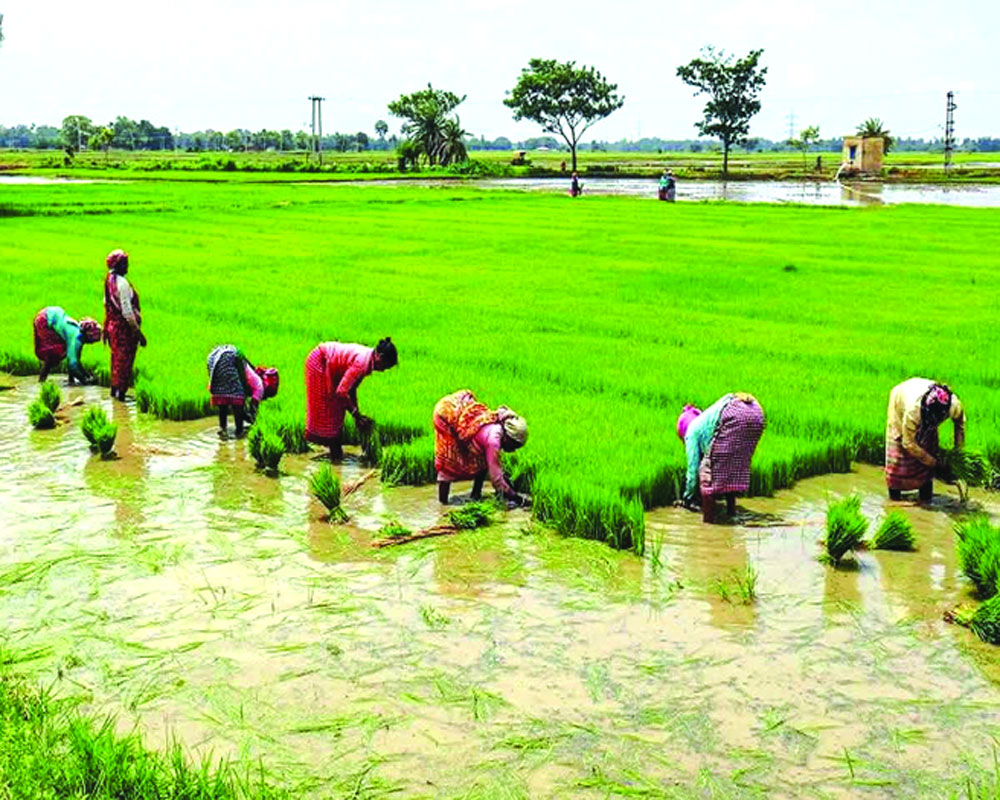Leading world bodies have lauded the Indian food programme
The heads of the World Bank, the International Monetary Fund (IMF), the United Nations World Food Programme (WFP) and the World Trade Organisation (WTO) issued a joint statement on April 13, urging coordinated action to help vulnerable countries address growing threats to food security. The proposed actions include providing emergency food supplies and deploying financial support to households and countries, facilitating unhindered trade, and investing in sustainable food production and nutrition security. World Bank Group President David Malpass, IMF Managing Director Kristalina Georgieva, WFP Executive Director David Beasley and WTO Director-General Ngozi Okonjo-Iweala issued the following joint statement ahead of the Spring Meetings of the IMF and World Bank Group next in the end of April: “The world is shaken by compounding crises. The fallout of the war in Ukraine is adding to the ongoing COVID-19 pandemic that now enters its third year, while climate change and increased fragility and conflict pose persistent harm to people around the globe. Sharply higher prices for staples and supply shortages are increasing pressure on households worldwide and pushing millions more into poverty. The threat is highest for the poorest countries with a large share of consumption from food imports, but vulnerability is increasing rapidly in middle-income countries, which host the majority of the world’s poor. World Bank estimates warn that for each one percentage point increase in food prices, 10 million people are thrown into extreme poverty worldwide.” “The rise in food prices is exacerbated by a dramatic increase in the cost of natural gas, a key ingredient of nitrogenous fertilizer. Surging fertilizer prices along with significant cuts in global supplies have important implications for food production in most countries, including major producers and exporters, who rely heavily on fertilizer imports. The increase in food prices and supply shocks can fuel social tensions in many of the affected countries, especially those that are already fragile or affected by conflict.” A study by the International Monetary fund has found that Prime Minister Narendra Modi’s food security project - the Pradhan Mantri Garib Kalyan Anna Yojana (PMGKAY) - has been critical in preventing any increase in extreme poverty levels in India during the Covid-19 pandemic.
The new IMF paper - Pandemic, Poverty, and Inequality: Evidence from India - found that extreme poverty (with purchasing power parity of less than USD 1.9 per person per day) in India was less than 1 per cent in 2019 and it remained constant even during the pandemic in 2020.”PMGKAY was critical in preventing any increase in extreme poverty levels in India and the doubling of food entitlements worked substantially in terms of absorbing the Covid-induced income shocks on the poor,” the report stated. Last month, Prime Minister Narendra Modi announced the extension of PMGKAY till September 2022. Under the PMGKAY, free food grain is provided to those in need.”A low level of extreme poverty for two consecutive years, including one marked by the pandemic, can be considered as elimination of extreme poverty,” it read. PM Modi says India is ready to supply food stock to world if WTO agrees. Stating that he has discussed the issue of the global food shortage with US President Joe Biden, Prime Minister Narendra Modi on April 12 said that India is ready to supply food stock to the world. It is already supplying to Afghanistan and Sri Lanka on moral grounds. India has unveiled a $22 billion package to provide food rations and cash transfers to about 800 million people hit by the coronavirus lockdown. Although India had a record harvest and has enough reserves, there are concerns about the food supply chain disruptions, especially for the poor.
(The writer is former Senior Professor, International Trade and Member, Vivekananda International Foundation. The views expressed are personal.)


























